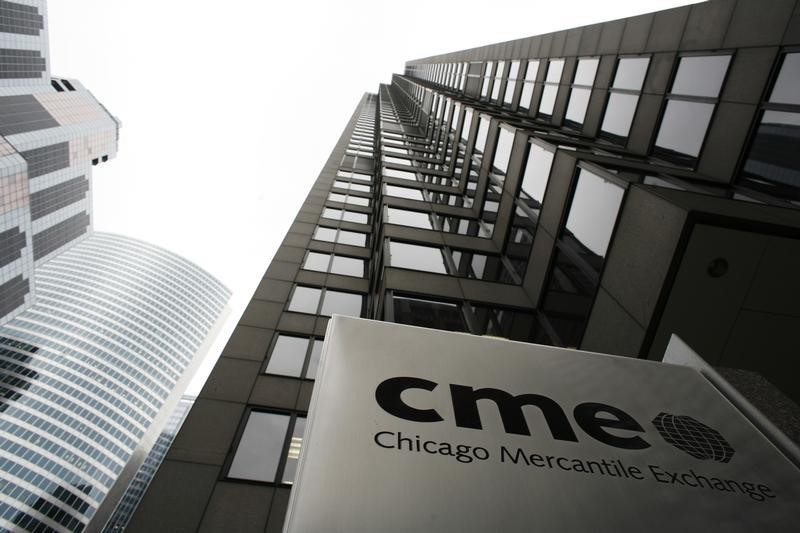By Anna Irrera
NEW YORK (Reuters) - Chicago-based exchange CME Group Inc (NASDAQ:CME) and Britain's Royal Mint have started testing a blockchain-based platform for trading gold, as more projects using the emerging technology come closer to deployment.
CME Group announced on Tuesday that the new platform, built with technology companies AlphaPoint and BitGo, was being tested by a select group of "major financial institutions," and is on schedule for launch this year.
The new platform will allow institutions to trade "Royal Mint Gold," or RMG, a new digital token issued by the Royal Mint, which makes Britain's coins.
Each RMG will represent the digitized version of 1 gram of gold stored in the Royal Mint's vault.
Transactions will be recorded on a blockchain, technology that allows a network of computers to keep track of and verify asset ownership.
Blockchain, which first emerged as the technology powering cryptocurrency bitcoin, is seen by financial institution as a powerful new tool to increase transparency and reduce the costs and complexity of a wide range of financial transactions.
"There is a higher level of traceability and audit that comes with blockchain technology because participants are provided with a permanent, immutable record of ownership and chain of ownership and custody," said Igor Telyatnikov, president and chief operating officer of AlphaPoint.
Up to $1 billion worth of RMGs will be issued initially by the Royal Mint.
"This is the first digital gold product that is institutionally targeted - and the first to work with a government entity - to be currently in a live testing state,” said Sandra Ro, head of digitization at CME Group. “An RMG is a digital representation of real gold sitting in the Royal Mint vaults.”
Over the past two years, banks and other financial institutions, such as exchanges, have ramped up their investments in the technology. While only a handful have gone live, more are starting to enter the implementation phase.
Post-trade provider the Depository Trust & Clearing Corp (DTCC) said in January that it would use blockchain technology this year to rebuild its platform that processes $11 trillion worth of credit default swaps.
